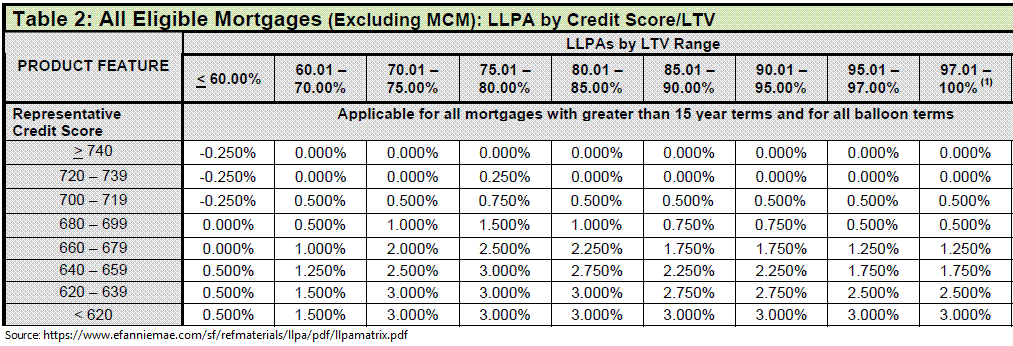Blog

ABA Says Delinquencies on Rise. MND Says Bad Implications for Housing Recovery
The American Bankers Association's (ABA) today released Consumer Credit Delinquency data. The ABA report said that the composite ratio, which tracks delinquencies in eight closed-end installment loan categories, rose 0.1 percent to a new record high of 3.23 percent of all accounts being delinquent.
Closed-end installment loans are extensions of credit to a borrower in which all funds are dispersed at the time of the loan closing. These loans have scheduled periodic repayment plans based on the amount of principal that was lent and the interest rate that was charged by the lender. Most real estate and auto loans are forms closed-end installment loans, also known as closed-end credit. The ABA's overall delinquency rate includes direct auto, indirect auto, closed-end home equity, home improvement, marine, mobile home, personal, and recreational vehicle loans.
The delinquent balances on those accounts rose from 3.16 percent to 3.35 percent of total balances due. The ABA defines a delinquency as payment that is 30 days or more overdue.
The weak labor market has been blamed for the record rate of delinquencies on credit card debt and home equity loans as job losses topped 2 million in the first quarter of 2009 leaving over 14.5 million Americans unemployed. ABA Chief Economist James Chessen said:
“When people lose their jobs or work fewer hours, it makes it that much harder to meet their obligations. Unfortunately, we're going to see higher job losses in the next year, and I expect elevated delinquencies.”
Chessen added that the unemployed may be using bank cards to bridge arntemporary income gap, especially with less home equity to fall back onrnas housing prices continue to fall. Bank card delinquencies rose 23rnbasis points to 4.75 percent of all accounts, compared to 4.52 percentrnin the previous quarter. The balances on those delinquent accountsrnrose dramatically, up 108 basis points to 6.60 percent of the value ofrnall outstanding bank card debt, marking a new record.
Illustrating the detrimental loss of consumer credit and its affect on housing was the home equity category of the report. Home Equity loan delinquencies rose 0.49 basis points to 3.52 percent of all accounts, a record high. The Home Equity Line of Credit category rose 43 bps to 1.89 percent of all accounts.
With continued job losses and longer periods of unemploymentrnexpected, further credit delinquencies are anticipated, especially ifrnconsumers are becoming increasingly reliant on credit cards to “makernthe ends meet”. Credit issuers are thus likely to freeze or close accounts inrnanticipation of this event. With a loss of credit, consumers will be forced to make a decision onrnwhether to make their housing payment or buy groceries to feed their family. Clearlyrnthis would lead to further housing delinquencies and eventually morernforeclosures.
This draws attention to yet another roadblock to the ObamarnAdministration's efforts to increase consumer spending via lowerrnmonthly housing costs. Because loans sold to the government sponsored enterprises, Fannie Mae and Freddie Mac, are subject to risk based loan level price adjustments, borrowers whose FICO scores are under 680 have a higher cost of borrowing than a consumer whose FICO score is over 680. The rising rate of delinquencies means more consumers will see their FICO score drop below 680 which implies more homeowners be subjected to higher housing finance costs. Not a positive omen for the prospects of a housing recovery.
Here is a look at Fannie Mae loan level pricing credit score adjustments :

Here is a look at the rest of the categories…..
Delinquencies rose for the following categories:
Direct Auto Loans from 2.03 to 3.01%
Mobile Home Loans from 2.96 to 3.70%
Personal Loans from 2.88 to 3.47%
Recreational Vehicle Loans from 1.38 to 1.52%
Delinquencies dropped for the following:
Auto Loans Made through Dealers from 3.53 to 3.42%
Marine Loans from 2.35 to 2.04%
Property Improvement Loans from 1.75 to 1.46%
All Content Copyright © 2003 – 2009 Brown House Media, Inc. All Rights Reserved.nReproduction in any form without permission of MortgageNewsDaily.com is prohibited.
Latest Articles
By John Gittelsohn August 24, 2020, 4:00 AM PDT Some of the largest real estate investors are walking away from Read More...
Late-Stage Delinquencies are SurgingAug 21 2020, 11:59AM Like the report from Black Knight earlier today, the second quarter National Delinquency Survey from the Read More...
Published by the Federal Reserve Bank of San FranciscoIt was recently published by the Federal Reserve Bank of San Francisco, which is about as official as you can Read More...

Comments
Leave a Comment